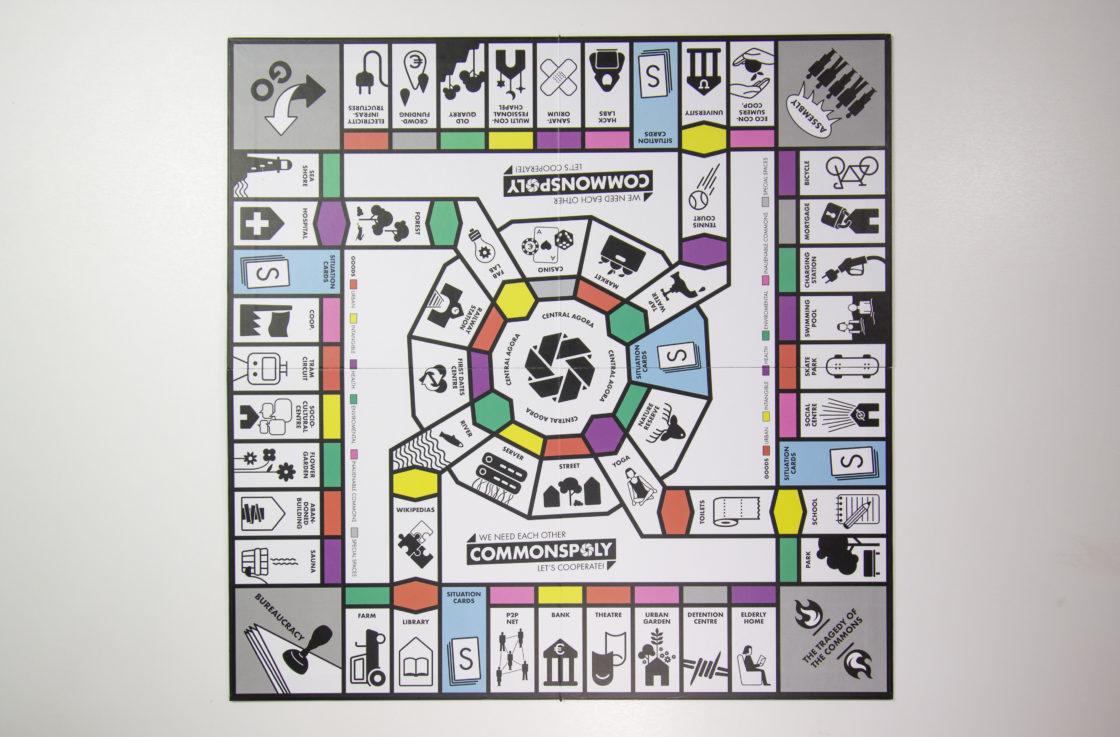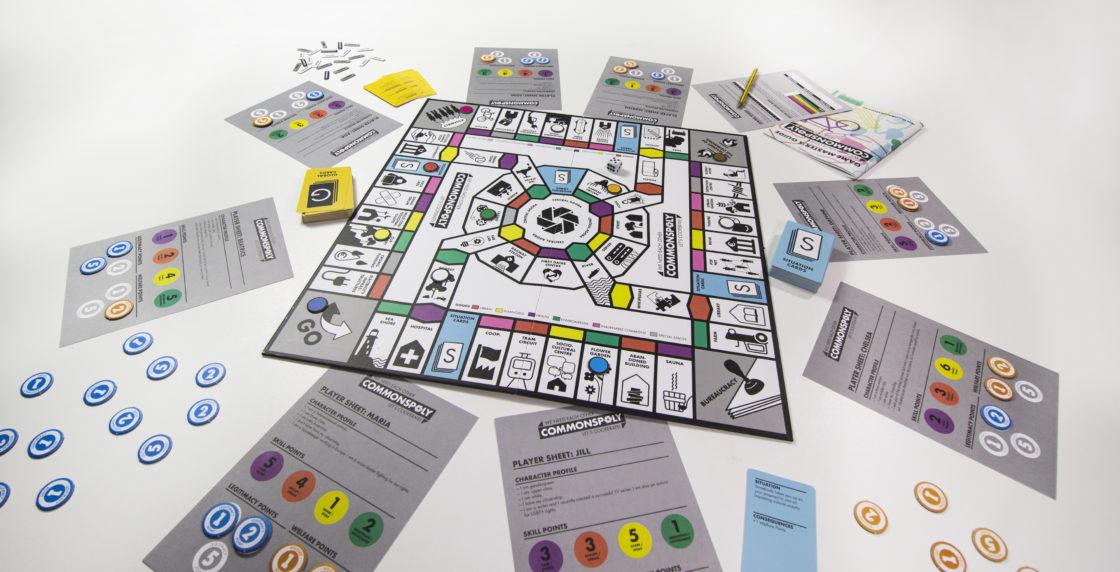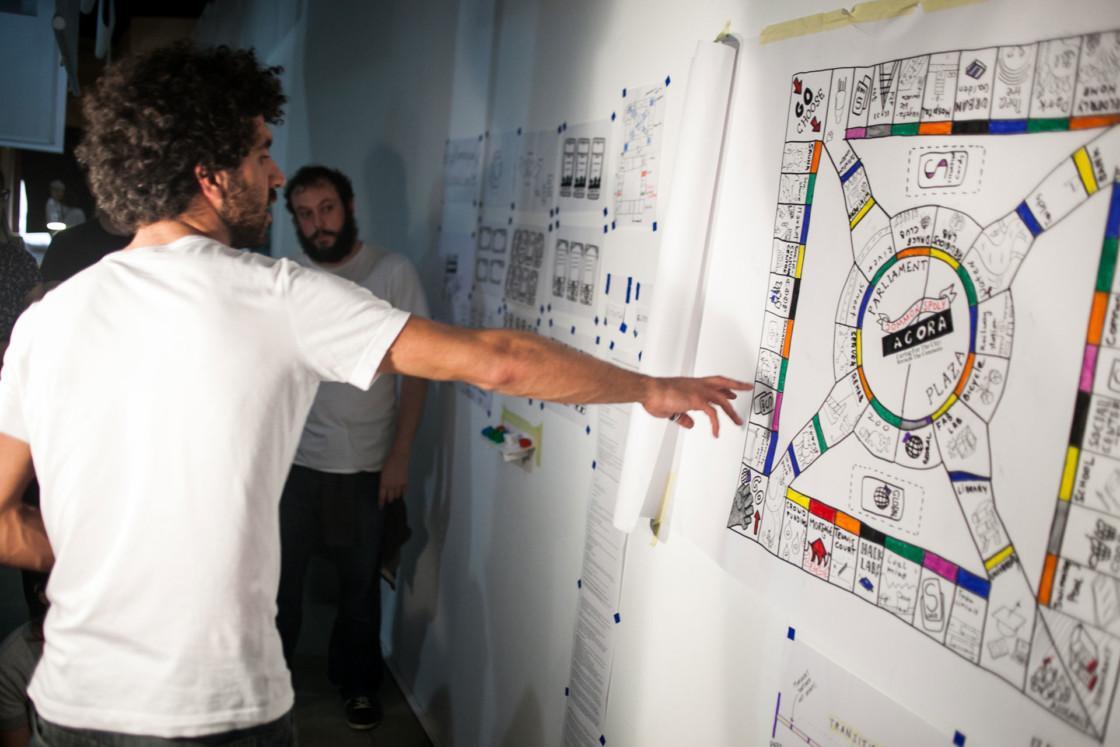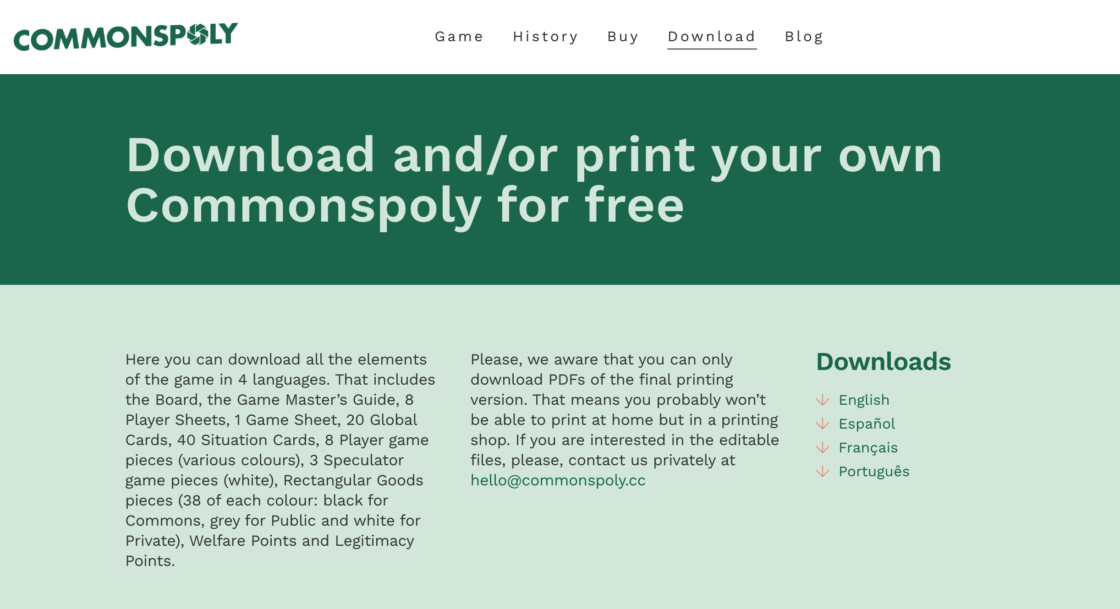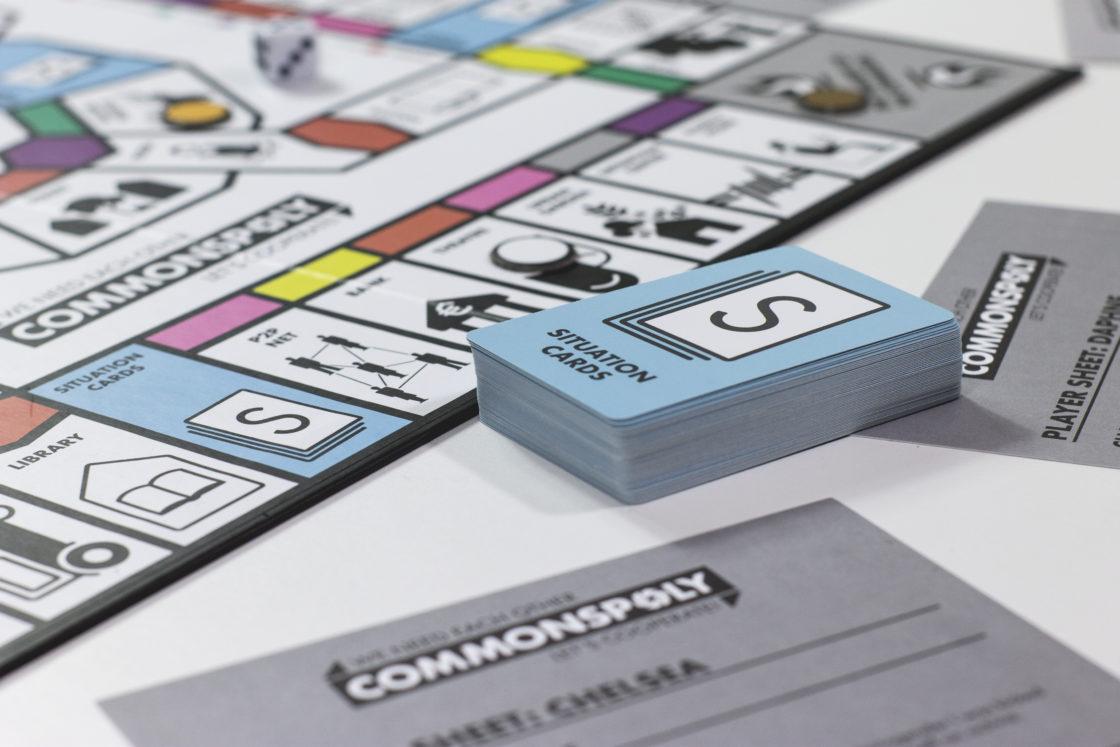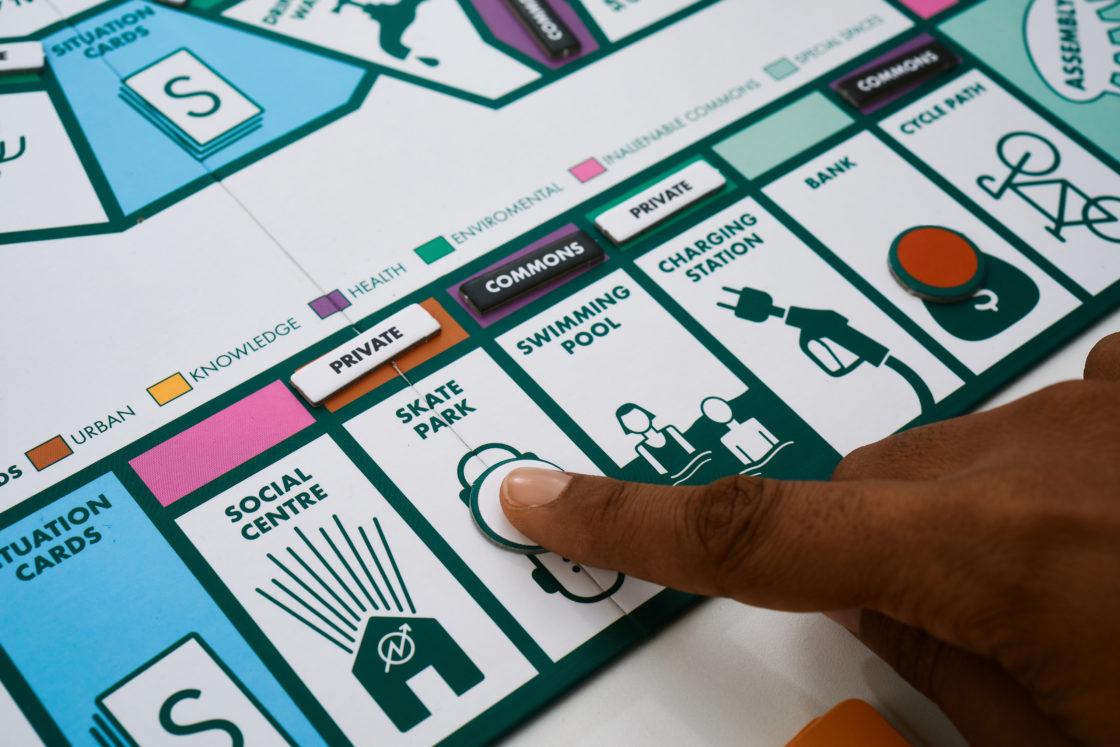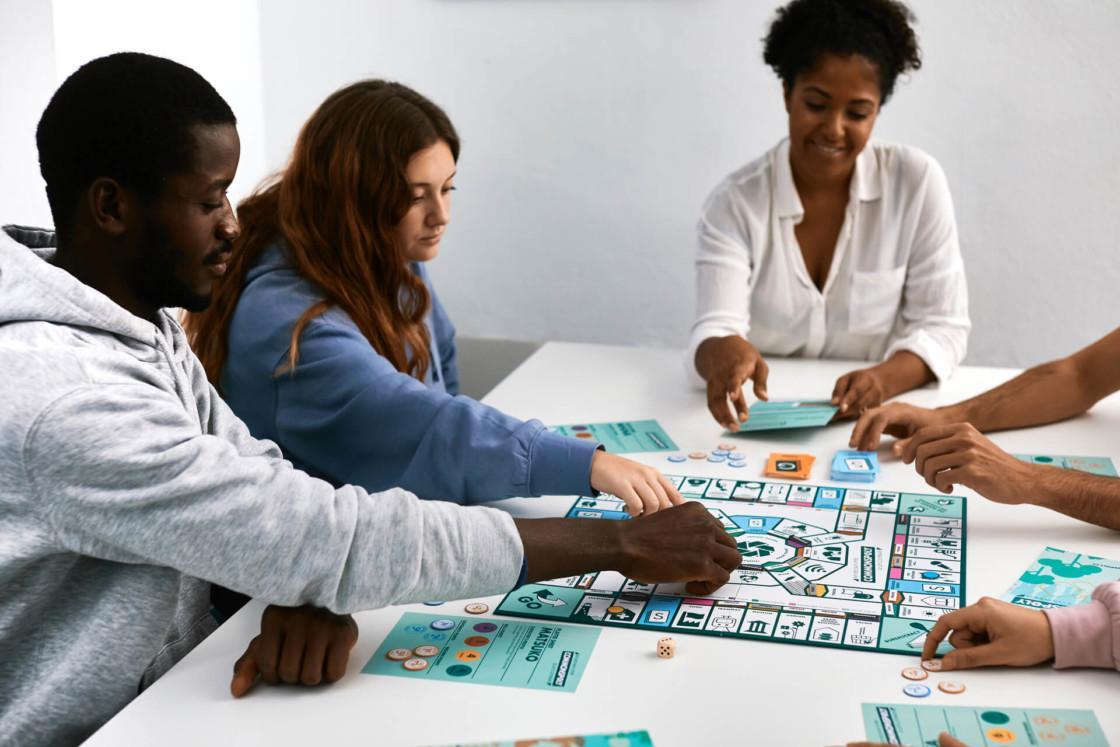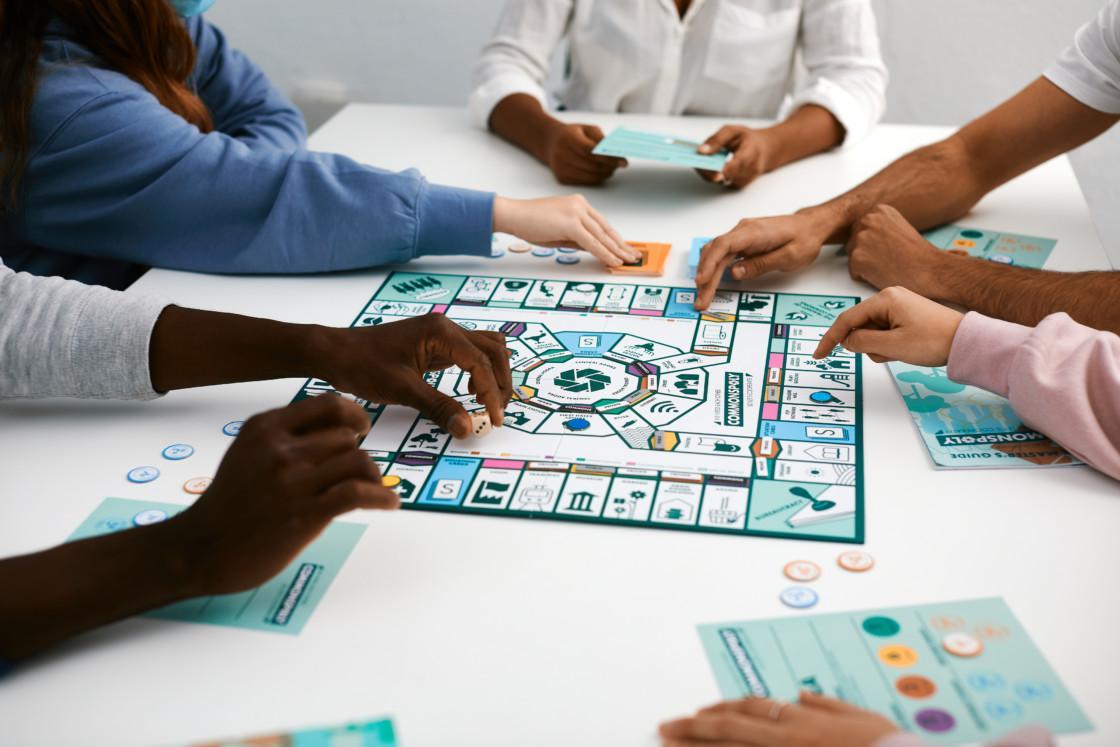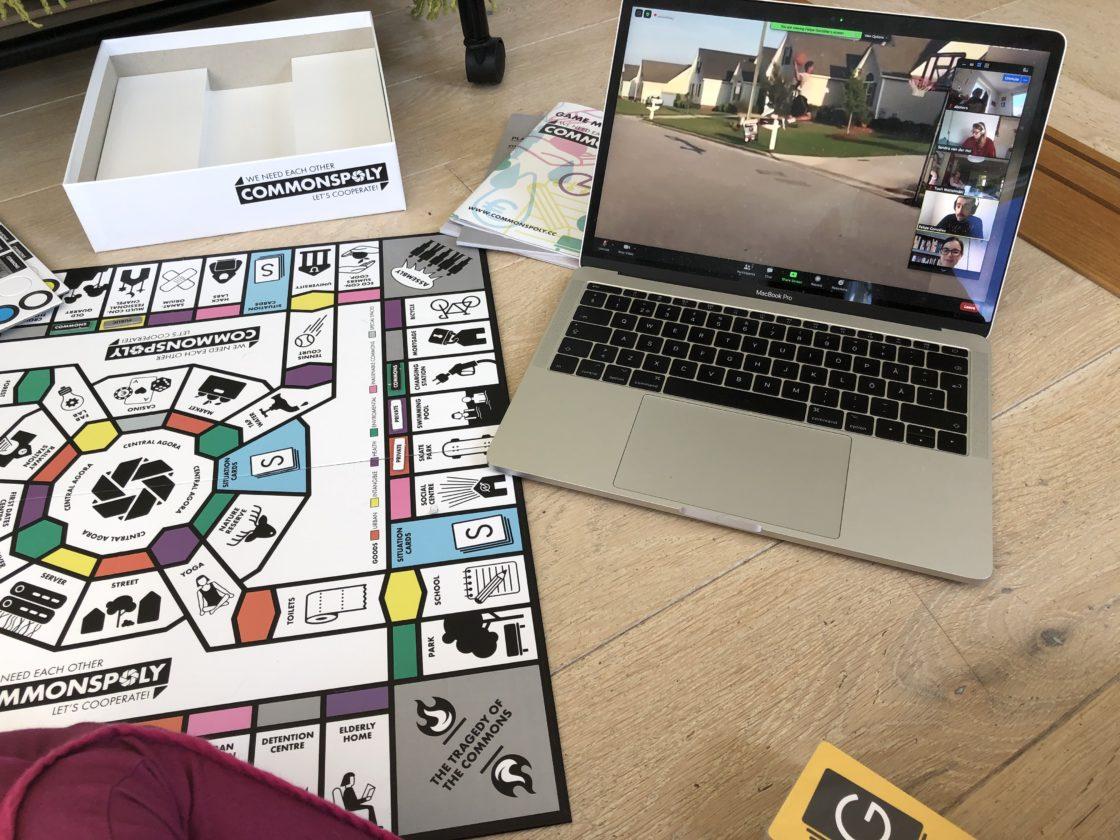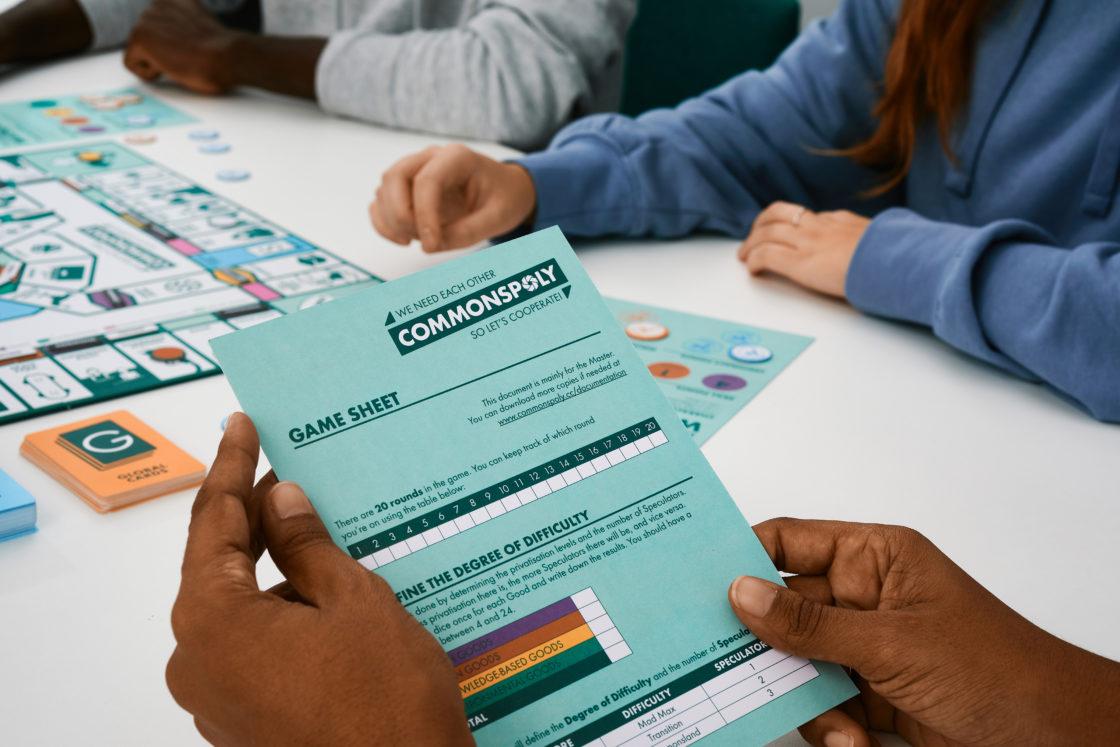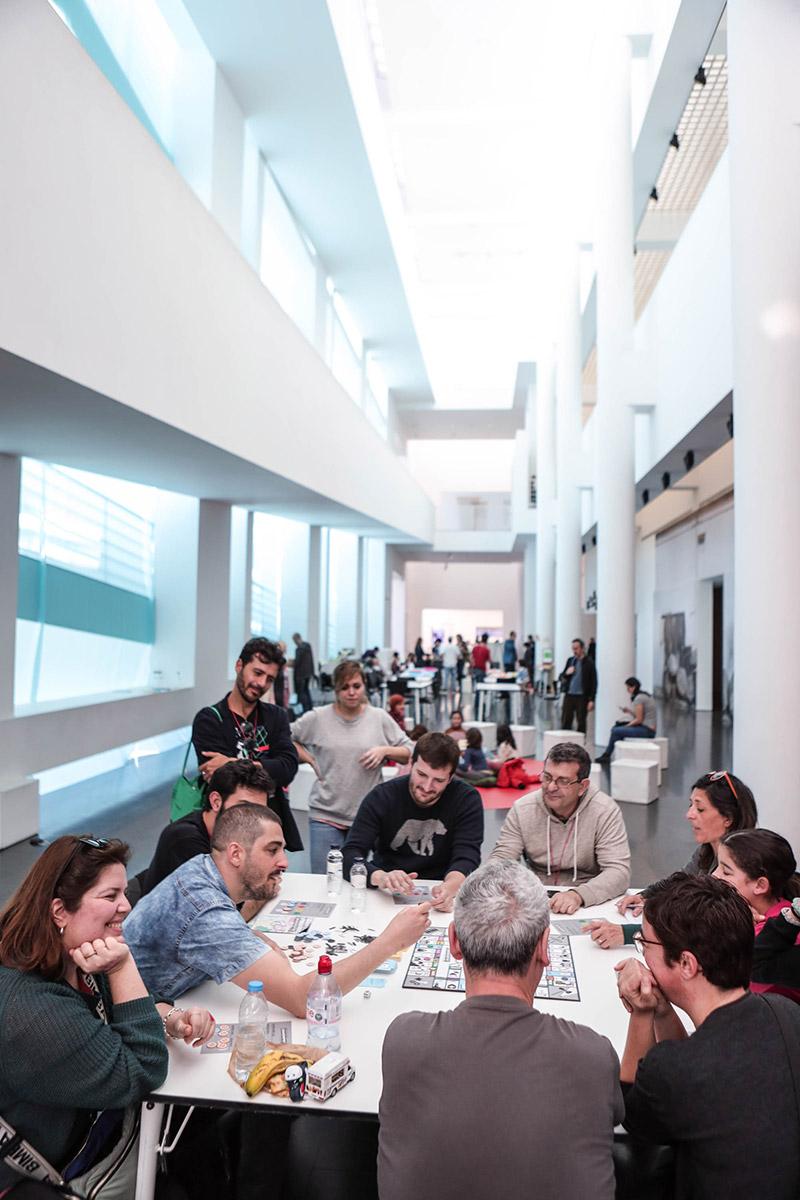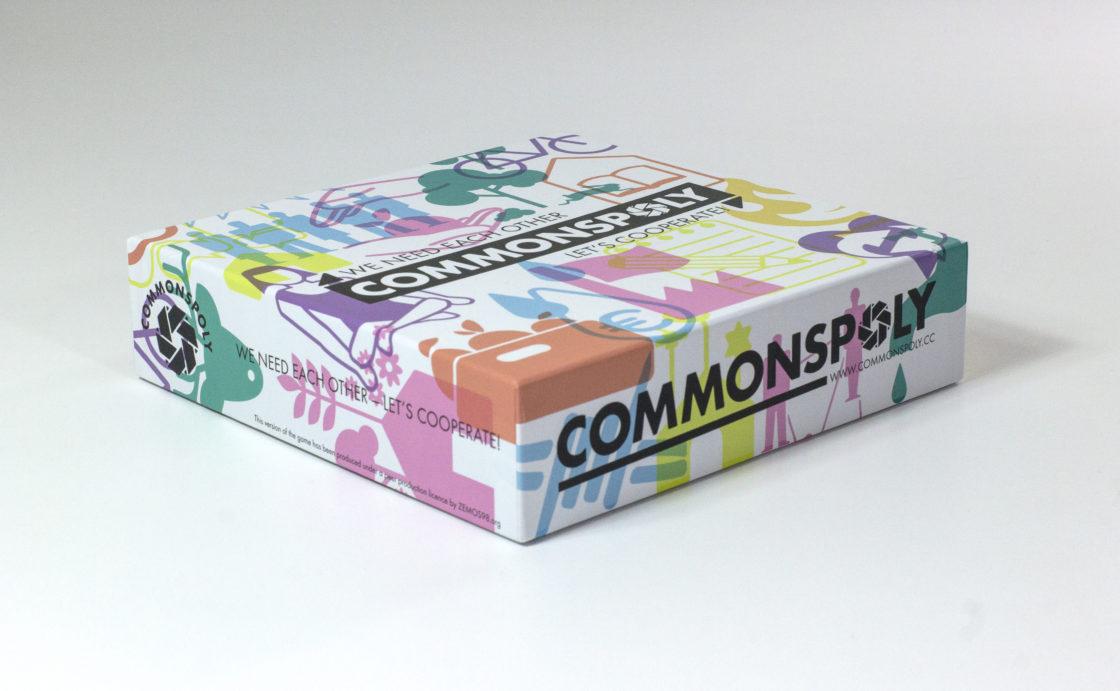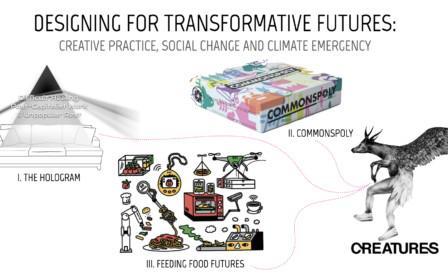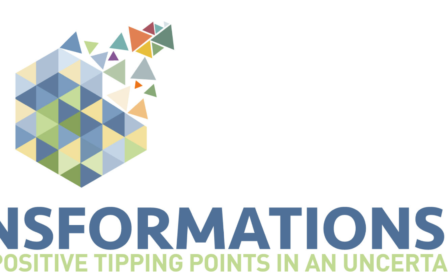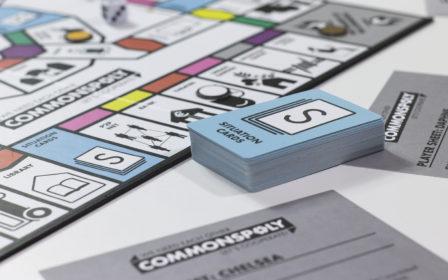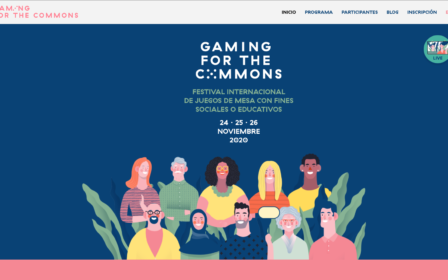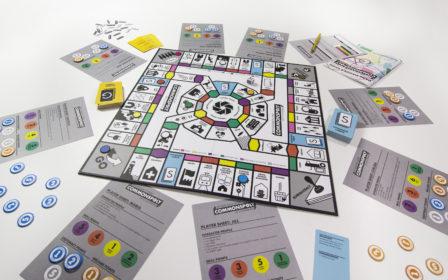Commonspoly is a non-profit, open-source board game that encourages a culture of cooperation and questions the violent model of neoliberal privatisation. Commonspoly emerged in 2015 as a way to hack and subvert the contemporary version of Monopoly. Just like the original, each space on the board provides goods or other resources, but in Commonspoly these goods can be Private, Public, or Commons. The game’s design principles draw on insights from commoning practices and encourage players to pool their resources together and act collectively against ‘speculators’ – nefarious game characters advocating privatization. Rather than competing to accumulate goods, the challenge is thus to create a society, where working together furthers the common good.
The game is typically played in public sessions at cultural events, engaging diverse local communities, but it can also be purchased or downloaded as print-ready files and played privately. The Commonspoly initiator, Spanish cultural cooperative ZEMOS98, also provides editable game files to encourage collaborative game development, enabling anyone to adjust the game to their specific contexts. These new game versions created by players are then distributed under the Peer Production License and their creators are listed as authors, while ZEMOS98 stays listed only as the author of the game versions that they develop themselves.
This peer process creates an open space for the development of a collective, distributed authorship of the game, where the game proliferates by accumulating diverse local and personal knowledges of various stakeholders interested in the topic of commons. Emphasis on collective authorship is a key part of the Commonspoly project: the openness to an ongoing re-negotiation is designed into the game, which becomes a commoning artifact on its own.
To scale out the game distribution and nurture a growing community of practice around the game, ZEMOS98 has recently initiated a network of ‘Ambassadors’: individuals and small bookstores that manage the sales and distribution of small game stocks locally, acting as Commonspoly advocates as well as gameplays facilitators. Ten bookstores around Spain have been successfully secured and the network has started to expand internationally, for instance into Finland, Greece, Portugal, and Italy.
Through these playing formats and development strategies, Commonspoly has already reached people in 23 countries and was released in five different iterations and four different languages. For instance, a Brazilian teacher adapted the game to the local context for her students; a UK-based Esperanto expert made a game translation. ZEMOS98 themselves have developed four game editions so far, with the latest one known as the Commonspoly Green Edition that has been used in the CreaTures project. Initially, the Commonspoly plan for CreaTures was to produce a series of live gameplays in Seville; however, due to the pandemic, the gameplays have been partially adapted into an online format.
The main goal of the Commponspoly project is to stimulate a collaborative, commons-based approach to the use of public resources as a sustainable alternative to the extractivist model of neoliberal privatization. The game fosters collective dynamics to the detriment of strategic visions based on competition and individualism and helps people imagine and negotiate various commoning strategies applicable in everyday-life contexts.
Along with the globally distributed Ambassadors network, Commonspoly builds a trans-local community network of stakeholders interested in long-term engagements, critical discussion, and education related to the topic of commons and socially sustainable economic models. The game thus works as an educational artifact supporting peer-learning and critical discussion about these topics and co-envisioning of socio-economic systems based on collaboration, mutuality, and solidarity rather than exploitation and extractivism.
